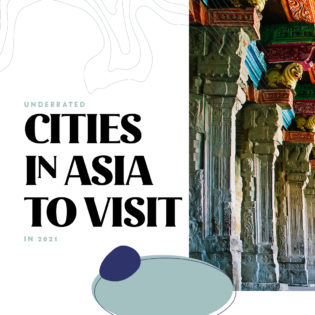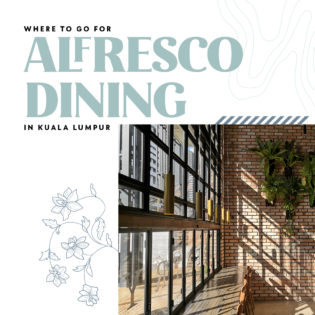City folks are getting their hands dirty with urban edible gardens
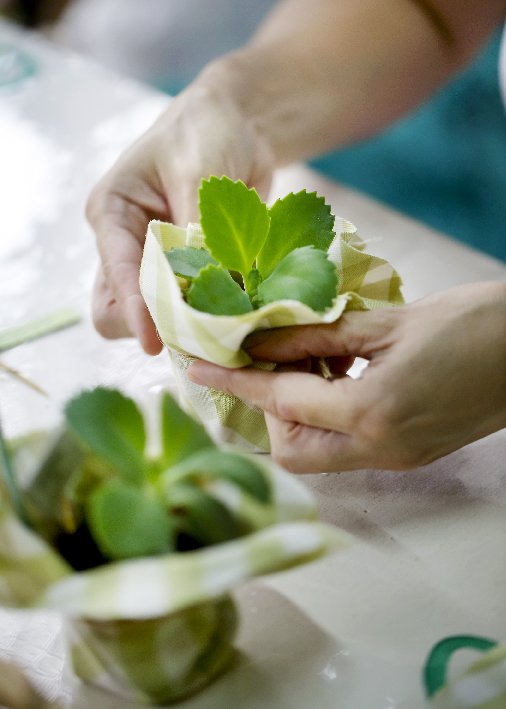
Where does our food come from? Living in the city has long created a disconnect from the land and food production; we have come to rely heavily on external food sources. But now, faced with the rising cost of food, pesticides in our vegetables and lack of access to proper nutrition through fresh produce, some urban dwellers are getting their hands dirty and growing their own food.
In cities all over the world, building rooftops, vacant lots, backyards and balconies are being turned into thriving food gardens to sustain families and communities. According to the U.S. Department of Agriculture, 15 percent of the world's food is currently grown in urban areas. Starting an urban edible garden shows that you can grow your own food, no matter where you live. It means that fresh, organic vegetables are a short walk from the people who eat it.
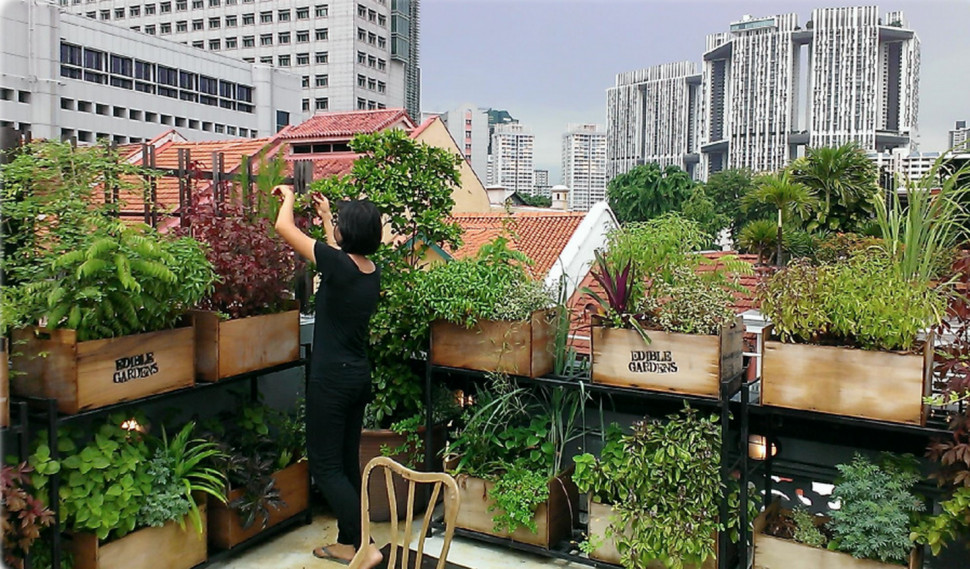
Bjorn Low and Rob Pearce founded Edible Garden City (ediblegardencity.com) in 2012 to champion the 'Grow Your Own Food' movement in land-scarce Singapore. The urban garden consultancy designs, builds and maintains food gardens for restaurants, hotels, schools and residences. Among their clients are Artichoke Café, Jamie's Italian, the Ministry of Education and Marina Bay Sands.
“One of our biggest problems is scepticism; everyone thinks an edible garden is not feasible in Singapore until we show them it is,” says Pearce, who grew up in an English farm. “Everyone should grow their own food at least in some small way; it’s really fundamental to who we are as humans. Once we understand what goes into growing things, it helps us make better choices about what we put into our bodies,” he adds.
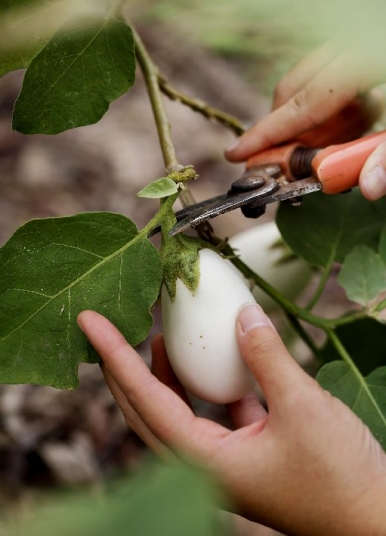
In Malaysia, the Ministry of Agriculture and Agro-Based Industry has launched an Urban Farming Programme, assisting city dwellers in setting up their own food gardens, while local councils have kicked off community garden projects. The Consumers' Association of Penang has produced starter kits complete with a pot, soil, seeds, organic fertiliser and a guidebook on how to grow vegetables.
On the ground, community organisations like Urban Hijau and Subur Community Gardens hold public gatherings and workshops to showcase urban gardening. Groups such as TTDI Edible Project and the Malaysian Gardening Community have sprung up to cater to modern farming enthusiasts. For the novice gardener, advice on sustainable farming and support can be crucial.
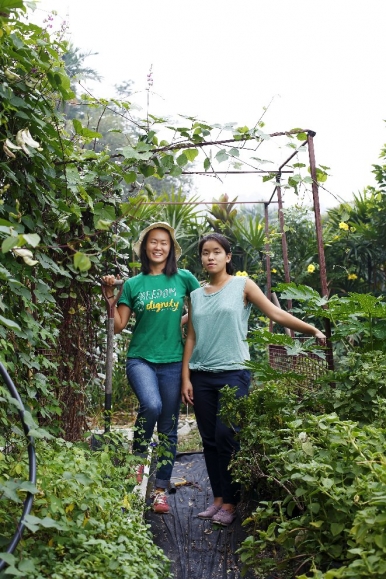
“Growing food takes a bit more effort than growing ornamental plants. Edible plants usually need more care and fertilisation to make sure you get a good yield,” advises Low Shao-Lyn of Eats, Shoots & Roots (eatsshootsandroots.org).
The social enterprise, run by Low and Beatrice Yong, was founded in 2012 to help city folks understand where their food comes from and learn how to take control of their food choices.
“We felt that whilst farms were concentrated in rural areas, urban areas are places where most people live these days, including ourselves. We also felt that this was the best way to get people interested in the environment because Malaysians love food,” says Low.
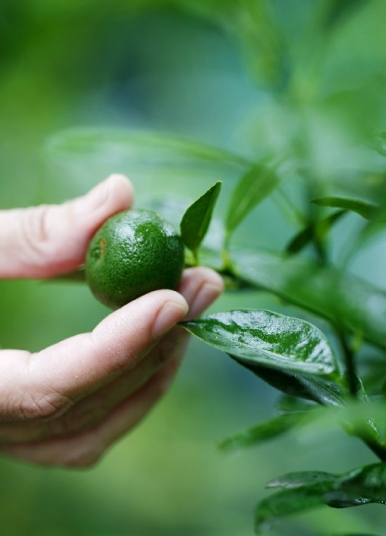
One of their biggest successes is the Kitchen Garden at Dignity for Children Foundation, built with the help of landscape designer Ng Seksan, the foundation's staff and volunteers. Their latest project is a rooftop garden at Clearwater Residence in Kuala Lumpur for Michelin-starred chef Jeff Ramsey.
Low and Yong also nurture their own garden in Petaling Jaya, where they employ different garden beds and gardening methods to grow a wide variety of edibles such as tomatoes, basil, kailan, roselle, chillies, pea eggplant and fruit trees like banana and papaya. “We use the space mainly as a place to experiment and to share knowledge with others,” says Yong.
Urban agriculture, says Low, is slowly gaining momentum with their edible gardens workshop attendance steadily growing. To make it easier for newbies, they have created seed boxes, which are for sale online, at select outlets in the city or at their workshops.
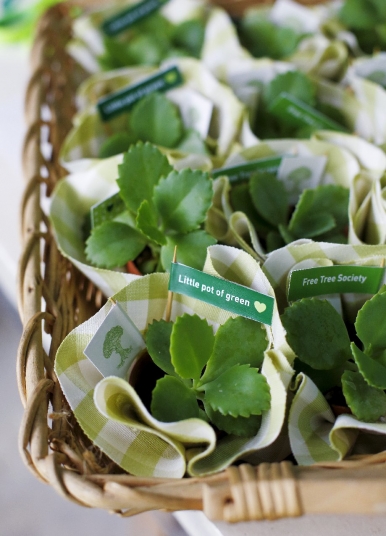
Alternatively, you could pick up a seedling on one of Free Tree Society's Giveaway Days. The society (freetreesociety.org), formed by a group of eco-minded women, has a nursery in Bangsar, Kuala Lumpur, where they collect seeds and sprout them to be given away free to the public. “We have a stock of over 4,000 plants growing in our nursery for giveaway. In just two years we have given away 4,500 plants,” says Baida Jane Hercus, one of the co-founders.
“Our herbs and fruit trees are always popular. Some of the more popular plants are mulberries, Indian borage, durian trees and chocolate mint. The chocolate mint smells like an After Eight chocolate. When visitors smell the chocolate mint, they swoon and have to have it!” says Baida.
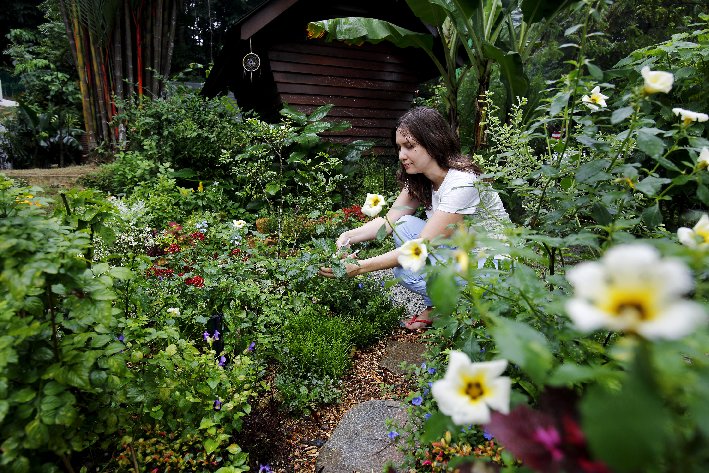
The society has recently set up an edible community garden beside its nursery, where the neighbourhood can have easy access to the fresh bounty. “There’s no better way to encourage Malaysians to learn gardening than to grow food and then eat it. We will entice urbanites into greener lifestyles through their stomachs!” enthuses Baida.
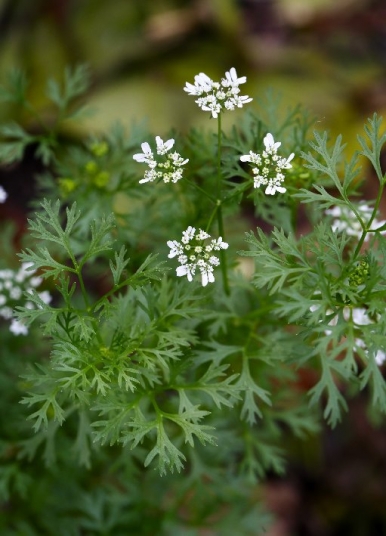
For urban dwellers who are used to getting their food off supermarket shelves, growing their own meals can seem daunting. Firdaus Nisha Muhammad Faizal of Ecocentric Transitions (ecocentrictransitions.com) advises starting small. “If you like salads, try growing microgreens or herbs. Growing sweet basil in a pot will reward you with enough to make a bottle of pesto, while a patch of kangkung (water morning glory) or sweet potato leaves are great for stir-fries every week,” she says.
Ecocentric Transitions uses urban agriculture projects to teach environmental education and sustainable living skills. They work closely with communities, families and institutions throughout the project, from garden design and plant selection to building planter beds and growing seedlings.
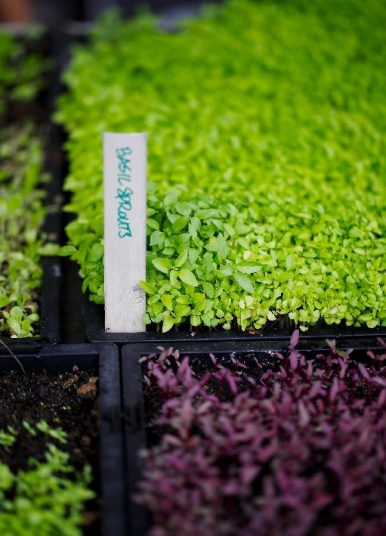
Nisha especially likes to see the change helping in the garden has on children, “Some of the kids learn how to seed-save and bring the seeds home to their parents to be planted. This extension of care is rarely seen in some of the kids and it amazes us how food security builds confidence and helps kids problem-solve.”
For her, having an urban edible garden is more than just about food. “We realised that the average home no longer has any food resilience and is totally dependent on store-bought food,” she says. “We aim to reintroduce edible gardens as a means of food production, nature appreciation, stress relief and community-building, all goals towards a resilient and connected society.”


